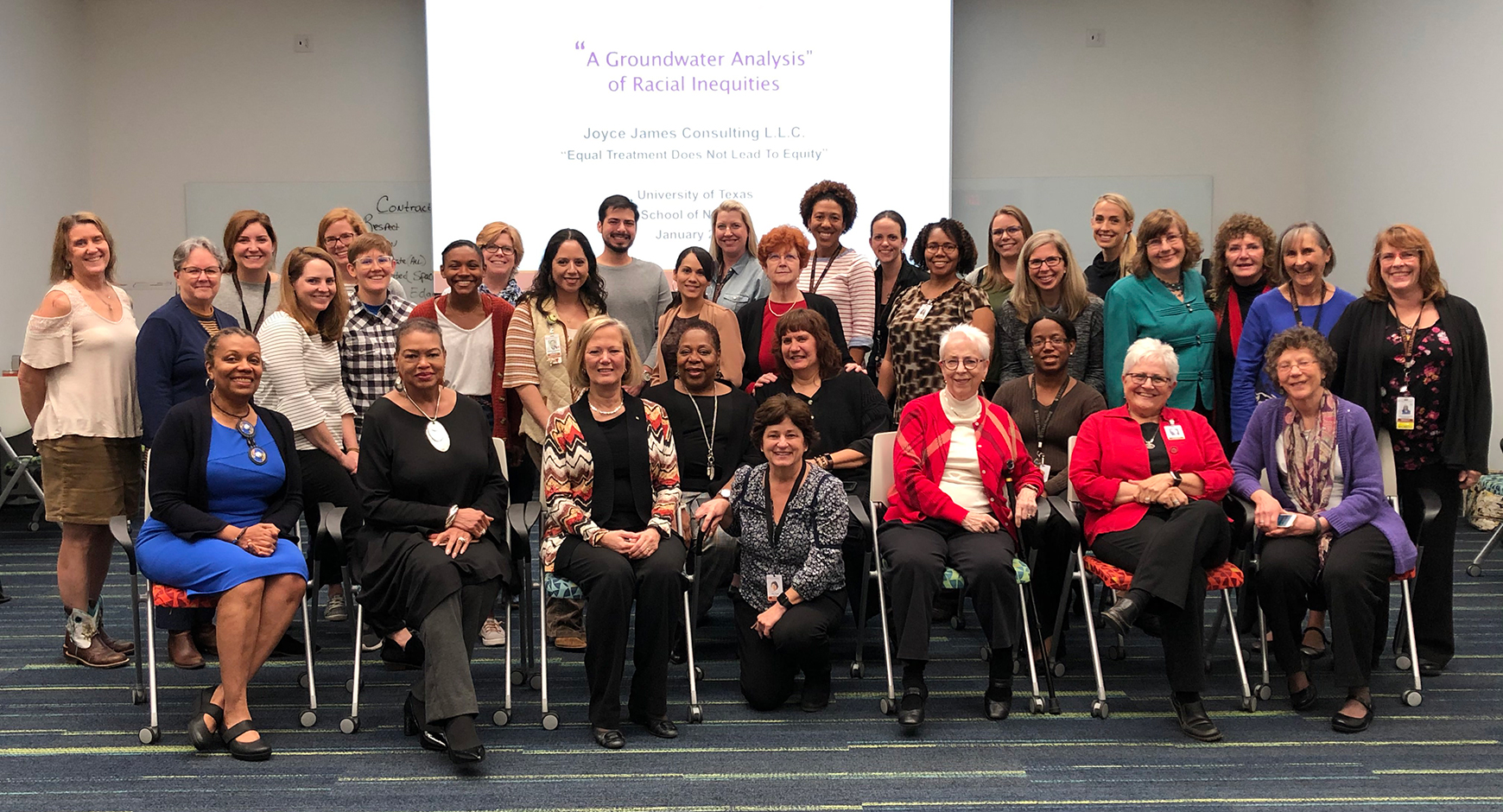On January 15th and 16th, 20 faculty, 7 staff members and 5 students from The University of Texas at Austin School of Nursing participated in anti-racism training, described as “A Groundwater Analysis of Racial Inequities”. The training was conducted by undoing racism consultant, Joyce James who has worked for over three decades to address systemic factors that hinder racial fairness and impartiality in child and family serving systems. The training helped participants become “critical lovers” of our institution as we “turned the mirror” inward to examine why Black people have disproportionately worse outcomes across multiple systems (e.g. health, education, criminal justice, juvenile justice, etc.). We learned and affirmed that it is not that there is something inherently wrong with black people. Instead we have to stop trying to “fix broken people” and instead fix broken systems.

This training was jointly sponsored by the dean’s office, the Provost Teaching Fellowship and the Black Mamas Community Collective. It is the first in a series of steps the school is taking to address and dismantle racism and other systems of oppression as we seek to become an even more inclusive space for our faculty, staff and students.
Training Overview: This workshop is designed to increase the level of consciousness and awareness of well-meaning and well-intentioned leaders regarding the impact of institutional and structural racism on communities of color. It is designed to strengthen and transform systems and community-based organizations to better respond to the needs of their client populations. It is also designed to promote a clearer understanding of the role of leadership in systems and institutions in working together to understand the history of institutional and structural racism to strengthen both staff performance and programmatic success in reducing and ultimately eliminating racial inequities.

